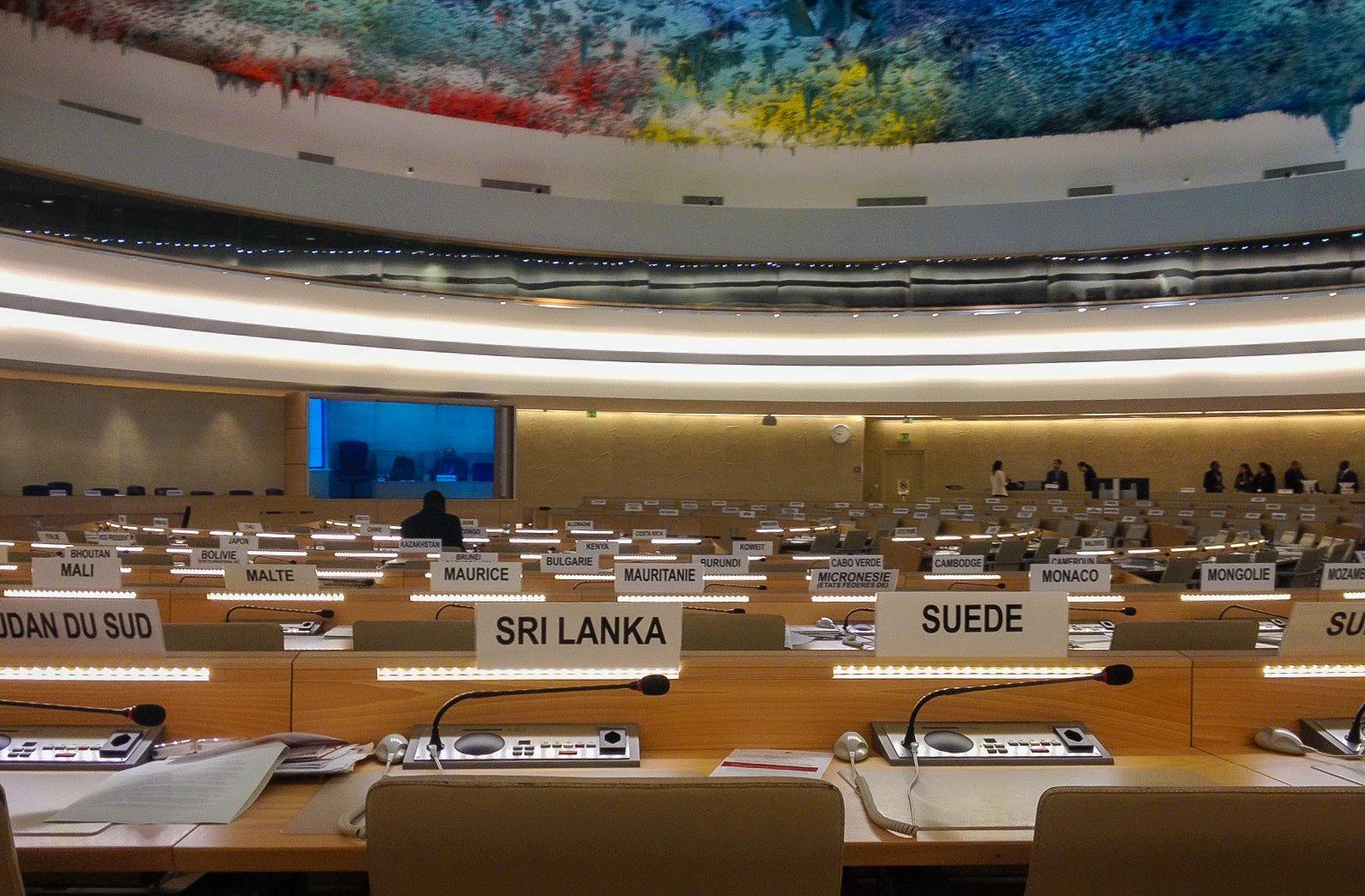
A draft United Nations Human Rights Council (UNHRC) resolution on Sri Lanka has called for the "re-energising" of failed Sri Lankan mechanisms ignoring long-standing calls from Tamils for a referral to the International Criminal Court (ICC).
The resolution, which was made public this afternoon, also calls for the extension and reinforcement of the Office of the High Commissioner for Human Rights capacity to "collect, consolidate, analyse and preserve" information which could be used in future war crimes trials.
The resolution calls on Sri Lanka to underscore the "importance of addressing underlying governance factors and root causes which have contributed to this crisis including deepening militarisation, lack of accountability in governance and impunity for serious human rights violations and abuses."
A new paragaph included in the draft states that it:
"Remains concerned at continued militarisation of civilian government functions; the erosion of the independence of the judiciary and key institutions responsible for the promotion and protection of human rights; lack of progress in addressing longstanding grievances and demands of Tamil and Muslim populations; surveillance, intimidation and harassment of journalists, human rights defenders, families of the disappeared and persons involved in memorialization initiatives, and sexual and gender-based violence."
'Re-energising' failed domestic mechanisms
Although Sri Lanka has failed to address Tamil grievances and make tangible process in regards to justice and accountability, the resolution "stresses the importance of re-energising the Office on Missing Persons and the Office for Reparations."
On many occassions, Sri Lanka has vowed to the international community that the Office of Missing Persons (OMP) is an effective mechanism to probe enforced disappearances. However, Tamil families of the disappeared have repeatedly rejected the OMP as it lacks independence and any findings cannot be used in civil or ciminal cases seeking justice.
In her latest report, Michelle Bachelet highlighted that the OMP "has not been able to trace a single disappeared person or clarify the fate of the disappeared in meaningful ways, and its current orientation is to expedite the closure of files”.
Sri Lanka has had numerous domestic mechanisms to investigate abuses perpetrated by the state's forces but they have very rarely held perpetrators accountable for their crimes.
Repeal the PTA
The resolution takes note of Sri Lanka's claims to repeal the Prevention of Terrorism Act (PTA) and introduce "new legislation on combating terrorism". Over the years, Sri Lanka has made numerous assurances to the international community that the legislation would be reformed in line with international law. To date, no adequate reforms have been made.
Sri Lanka still uses the PTA as a tool to arbitrarily arrest and detain individuals, violate fair trials and puts detainees at risk of torture, sexual violence and other ill treatment. The resolution fails to ackowledge that the PTA has been used disproprtionately against Tamils and Muslims by the Sinhala state.
Crippling economic crisis
Whilst welcoming the announcement that Sri Lanka has reached a staff - level agreement with the International Monetary Fund (IMF), the resolution also expresses its concerns over Sri Lanka's economic crisis on human rights. It stressed "the need to promote and protect the rights of the most marginalised and disadvantaged individuals, including daily wage earners, children, older persons, and persons with disabilities."
The draft also calls on Sri Lanka to prevent another economic crisis by "investigating and, where warranted, prosecuting corruption, including by public and former public officials, and stands ready to assist and support independent, impartial, and transparent efforts in this regard."
In its final paragraph, the resolution also calls on the OHCHR to continue its monitoring and reporting of the human rights in Sri Lanka. It has also set a deadline for September 2024 for a “comprehensive report including further options for advancing accountability."
Since the last resolution, few countries have acted upon the recommendations outlined in the UN High Commissioner's 2021 report, including the use of universal jurisdiction and targeted sanctions against Sri Lankan human rights abusers.
Read the full draft here.
We need your support
Sri Lanka is one of the most dangerous places in the world to be a journalist. Tamil journalists are particularly at threat, with at least 41 media workers known to have been killed by the Sri Lankan state or its paramilitaries during and after the armed conflict.
Despite the risks, our team on the ground remain committed to providing detailed and accurate reporting of developments in the Tamil homeland, across the island and around the world, as well as providing expert analysis and insight from the Tamil point of view
We need your support in keeping our journalism going. Support our work today.
For more ways to donate visit https://donate.tamilguardian.com.

